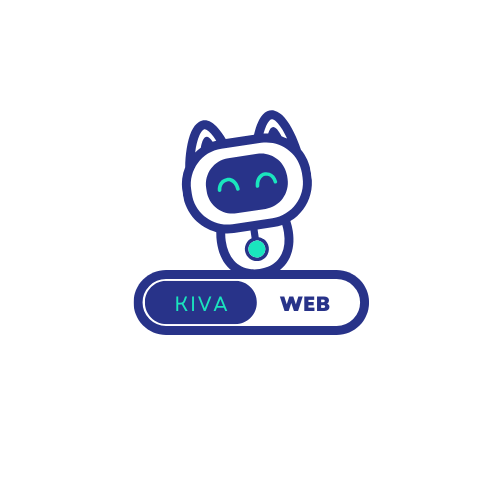In a world where creativity often meets a deadline, AI content creation is like having a caffeine-fueled intern who never sleeps. Imagine having a tool that churns out engaging articles, catchy social media posts, and even witty emails—all while you kick back with a cup of coffee. It sounds like a dream, right? Well, it’s not just a fantasy anymore; it’s the reality of modern content creation.
Table of Contents
ToggleOverview of AI Content Creation
AI content creation refers to using artificial intelligence technology to generate written material across various formats. The scope includes articles, blogs, social media posts, and marketing materials, offering creativity and efficiency in the writing process.
Definition and Scope
AI content creation encompasses tools and software that leverage machine learning algorithms to produce text. Natural language processing enables these tools to understand context and craft coherent sentences. Applications include chatbots for customer service, content generators for websites, and tools that assist with SEO optimization. As technology evolves, the capabilities of AI in generating unique content increasingly grow.
Importance in Today’s Digital World
Today’s digital landscape relies heavily on content for engagement and communication. Businesses prioritize quick, quality content to satisfy consumer demand. AI streamlines the process, allowing creators to focus on strategy and messaging while automation handles the repetitive tasks. Efficiency leads to cost savings, enhanced productivity, and timely content delivery. In a competitive market, adopting AI content creation becomes essential for staying relevant and meeting audience expectations.
Types of AI Content Creation Tools

AI content creation encompasses various tools tailored for different media formats. Each type serves a unique purpose, enhancing efficiency and creativity for content creators.
Text Generators
Text generators excel at producing written content quickly. These tools utilize machine learning algorithms that analyze vast datasets of text. Marketers, bloggers, and writers use them to create articles, social media posts, and product descriptions. Tools like OpenAI’s GPT-3 and Jasper.ai enable seamless generation of coherent narratives. Users appreciate the speed and scalability offered, allowing them to focus on higher-level tasks.
Image and Video Creators
Image and video creators harness AI to generate visual content efficiently. Tools like Canva’s AI features and DeepArt transform concepts into stunning visuals. Many platforms offer automated image editing, enhancing user-generated photos for professional appeal. Video content creation also benefits, with tools like Lumen5 synthesizing scripts into engaging videos. A significant advantage lies in their ability to streamline the creative process, saving time and resources without compromising quality.
Audio Content Tools
Audio content tools revolutionize how creators produce sound. Text-to-speech software converts written content into lifelike audio, catering to various audiences. Users can rely on platforms like Descript to edit audio seamlessly, adding rich features like background music or voice effects. Podcast creators and businesses utilize these tools to enhance listener engagement. Their versatility in producing high-quality audio content makes them indispensable in today’s digital landscape.
Benefits of AI Content Creation
AI content creation offers numerous advantages for businesses and creators. It significantly boosts efficiency, enhances creativity, and provides cost-effectiveness.
Increased Efficiency
AI tools expedite the content creation process. By automating repetitive tasks, content creators allocate more time to strategy and ideation. Text generators produce articles and posts in minutes, allowing teams to meet tight deadlines. Streamlined workflows become the norm as AI handles multiple formats seamlessly. AI’s capability to analyze data enables customization of content tailored to audience needs. This efficiency doesn’t just save time; it enhances overall productivity and responsiveness.
Enhanced Creativity
Creativity flourishes with AI assistance. Rather than replacing human input, AI complements it by generating ideas and suggestions. Tools like GPT-3 inspire writers with fresh perspectives and alternate phrasings. AI’s analysis of trends helps identify popular topics, guiding creators in their work. Collaboration between humans and AI enriches content with diverse viewpoints. Unexpected combinations of ideas from AI spark innovative solutions, driving engaging content creation.
Cost-Effectiveness
Investing in AI content creation proves economically beneficial. Companies reduce labor costs by automating various writing tasks. AI tools lower expenses related to hiring multiple writers or agencies. Faster production times translate to quicker go-to-market strategies, boosting potential revenue. Businesses also minimize errors and rework costs due to AI’s precision in data analysis. Overall, the financial impact of integrating AI into content strategies highlights its value for businesses looking to thrive.
Challenges and Limitations
AI content creation faces several challenges that affect its effectiveness. Quality and authenticity remain key concerns as AI-generated content often lacks the human touch. Readers may find AI-written articles less engaging, resulting in lower trust levels. While AI can produce coherent text, it occasionally misses subtle nuances or emotional connections essential for compelling storytelling. Thus, brands risk losing their unique voice and personality through over-reliance on automated tools.
Ethical considerations arise when using AI for content generation. Plagiarism and copyright infringement represent significant risks if AI utilizes existing content without proper adherence to guidelines. Additionally, AI can inadvertently produce biased or misleading information, raising concerns about accountability. Users should consider the implications of machine-generated content on credibility and public trust. Managing transparency in AI utilization and ensuring compliance with ethical standards remains critical for successful implementation.
Future of AI Content Creation
AI content creation continues to evolve rapidly. Emerging trends are reshaping how businesses engage with audiences.
Emerging Trends
Personalization stands out as a key trend. AI tools now analyze user data to create tailored content that resonates with specific audience segments. Voice search optimization is becoming increasingly important, as spoken queries alter how AI generates text. Additionally, collaboration between human creators and AI encourages innovative content, blending unique human insights with AI efficiency. Visual content is also gaining prominence, with AI-driven platforms enhancing image and video production to captivate users. These trends suggest a more interactive and tailored approach to content, pushing the boundaries of creativity and engagement.
Predictions for Development
Future developments in AI content creation focus on enhancing quality and reliability. Enhanced natural language processing capabilities promise to produce more nuanced and engaging content. Anticipating a rise in ethical guidelines, companies will prioritize transparency in AI-generated materials. Brands will invest in tools ensuring compliance with copyright and plagiarism standards to maintain trust. AI’s role in content marketing could grow, driving analytics and strategy refinement for more effective campaigns. Overall, these predictions highlight an ongoing shift towards smarter, more ethical AI applications in content creation.
Conclusion
AI content creation is revolutionizing how businesses approach their marketing strategies. By automating repetitive tasks and enhancing creativity, it allows content creators to focus on what truly matters. The convenience and efficiency of AI tools not only streamline workflows but also enable tailored content that resonates with audiences.
While challenges like quality and ethical concerns exist, the future of AI in content creation looks promising. As technology advances, the collaboration between human creators and AI will likely lead to more personalized and engaging content. Embracing these innovations will be crucial for businesses aiming to stay competitive in an ever-evolving digital landscape.










